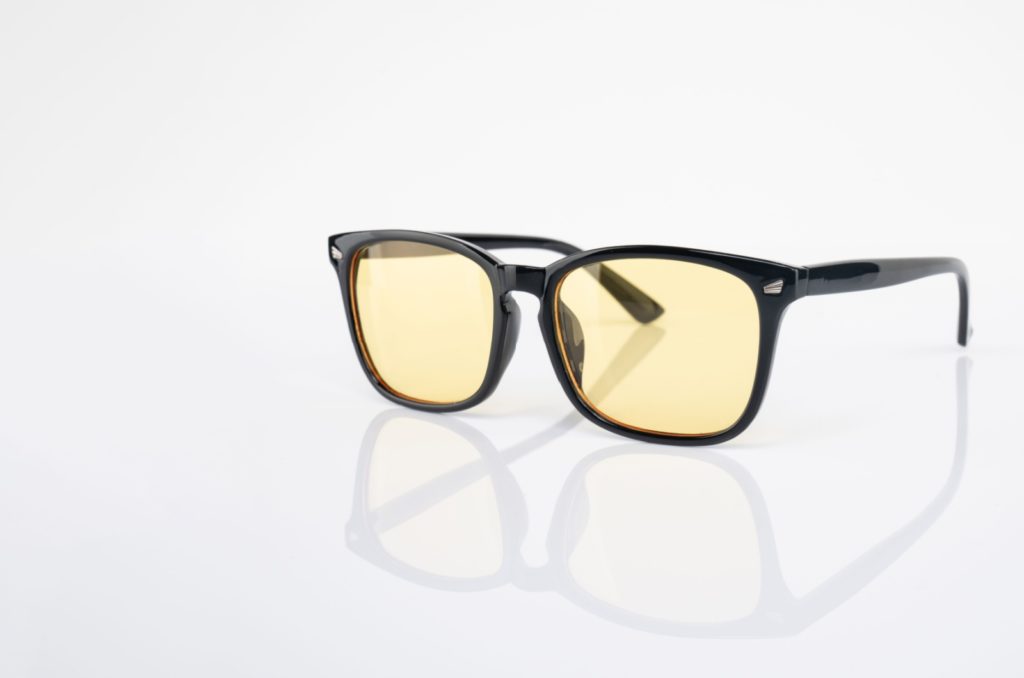Driving at night can be daunting for many people, especially when there are very few streetlights to help you see. Night blindness, or nyctalopia, affects how well you see in low-light conditions, which can lead to increased anxiety. A comprehensive eye exam can test your vision in low-light conditions.
Glasses equipped with anti-reflective (AR) coatings or specialized lenses can help improve vision for individuals with night blindness, making nighttime activities safer and more comfortable. Since night blindness can cause difficulties beyond driving, such as walking in dimly lit areas or finding your way inside darkened rooms, these glasses can promote good vision and safety even in low-light settings.
What Is Night Blindness?
Night blindness is not a disease but rather a symptom of various underlying conditions. It manifests as difficulty seeing in low-light environments, such as during dusk or nighttime. Common causes of night blindness include:
- Myopia (nearsightedness): This condition causes distant objects to appear blurry while close objects can be seen clearly.
- Vitamin A deficiency: This essential vitamin plays a crucial role in maintaining healthy vision. A lack of it can lead to progressive vision impairment, especially at night.
- Cataracts: These cloudy formations on the eye’s lens can block light from reaching the retina, leading to poor night vision.
- Retinitis pigmentosa: This genetic disorder affects the retina’s ability to respond to light, causing gradual night vision loss.
- Glaucoma: Increased pressure inside the eye can damage the optic nerve, affecting peripheral vision and low-light vision.
- Medications: Certain medications can have side effects that impair night vision.
Since night blindness is typically a symptom of an underlying condition, understanding the root cause is essential for determining the most effective management strategies.
Types of Glasses for Night Blindness
Night-driving glasses have gained popularity for their ability to enhance vision for individuals with night blindness. These glasses use different lens coatings to reduce glare and improve contrast in low-light conditions.
Prescription Glasses
Sometimes the best answer is the simplest one! Poor night vision may reveal a refractive error you never knew you had. For example, some people only experience blurry distance vision at night, a condition called night myopia. In this case, you may need to get a pair of prescription lenses to help you see in the dark.
Alternatively, your prescription may be outdated. Regularly updating your prescription can help you see clearly at night and in low-light environments. Stay up-to-date with your eye exams so your optometrist can help you address any vision changes promptly.
Anti-Reflective Coating
Prescription glasses with anti-reflective (AR) coating can enhance night vision by reducing glare from oncoming headlights and streetlights. This coating minimizes reflections on the lens surfaces, allowing more light to pass through while minimizing halos and glare to improve overall visual clarity.
Do Yellow-Tinted Lenses Work for Night Blindness?
Their effectiveness is often debated. Yellow and orange lenses are designed to increase contrast in hazy, foggy, and low-light conditions. They help reduce glare, which is helpful in low-lighting conditions. With a prescription, they can also correct vision.
However, while yellow-tinted night driving lenses are a popular choice for combating night blindness, they may sometimes reduce visibility by blocking light.
Still, people may find them useful for low-light settings that require cutting down glare. It’s important to check for yourself whether these lenses can help you.

Tips for Managing Night Blindness
While specialized glasses can greatly assist in managing night blindness, there are additional measures you can take to enhance your night vision and see more comfortably in low-light conditions.
If you’re wearing eyeglasses, make sure they’re clean and free of smudges or scratches. These can amplify glare and further reduce vision.
Similarly, make sure that your windshield is clean when driving at night because dirt and dust can amplify glare. Dim your dashboard lights and screens to prevent eye strain at night.
Here are some more tips to further help enhance your night vision:
- Regular eye exams: Schedule routine check-ups with your optometrist to monitor your eye health and update your prescription as needed.
- Proper lighting: Use adequate lighting in your home and workspaces to reduce eye strain.
- Healthy diet: Consume foods rich in vitamin A, such as carrots, sweet potatoes, and leafy greens, to support overall eye health.
- Avoid glare: Minimize exposure to bright screens and use anti-glare filters on digital devices.
- Rest your eyes: Take regular breaks from activities that strain your eyes, such as prolonged screen time or reading in dim light.
If your night blindness is the symptom of a larger condition, talk to your doctor about recommended treatments.
Seeing Clearly Is Night & Day
Combating night blindness starts with understanding its causes and finding the right solutions to fit your needs. Specialized lenses can help improve night vision, but maintaining a healthy lifestyle and prioritizing regular eye check-ups play an important role in managing your vision and eye health. Contact our team at Total Vision Golden Hills or book an appointment today, and we’ll happily guide you through your options. Our team is dedicated to helping you find solutions to address your personal needs.



